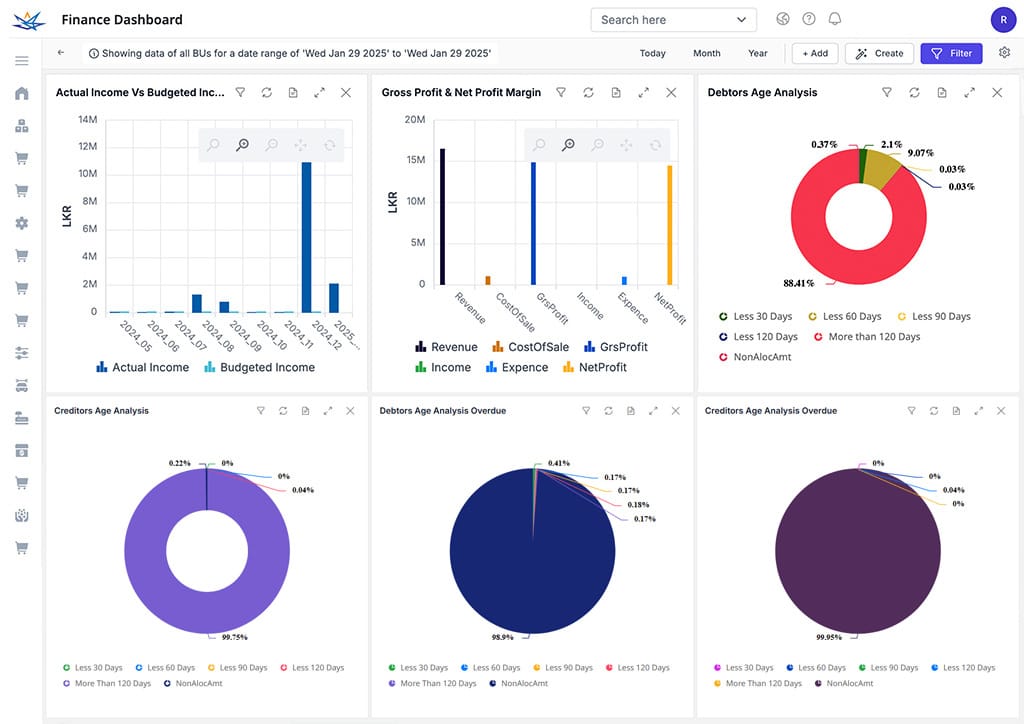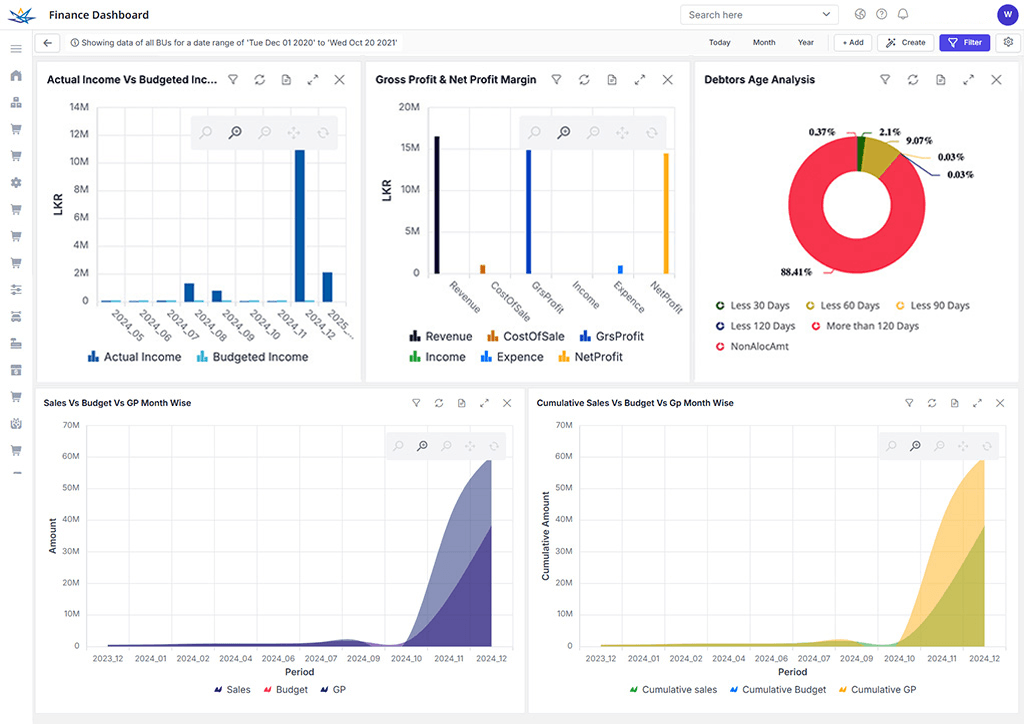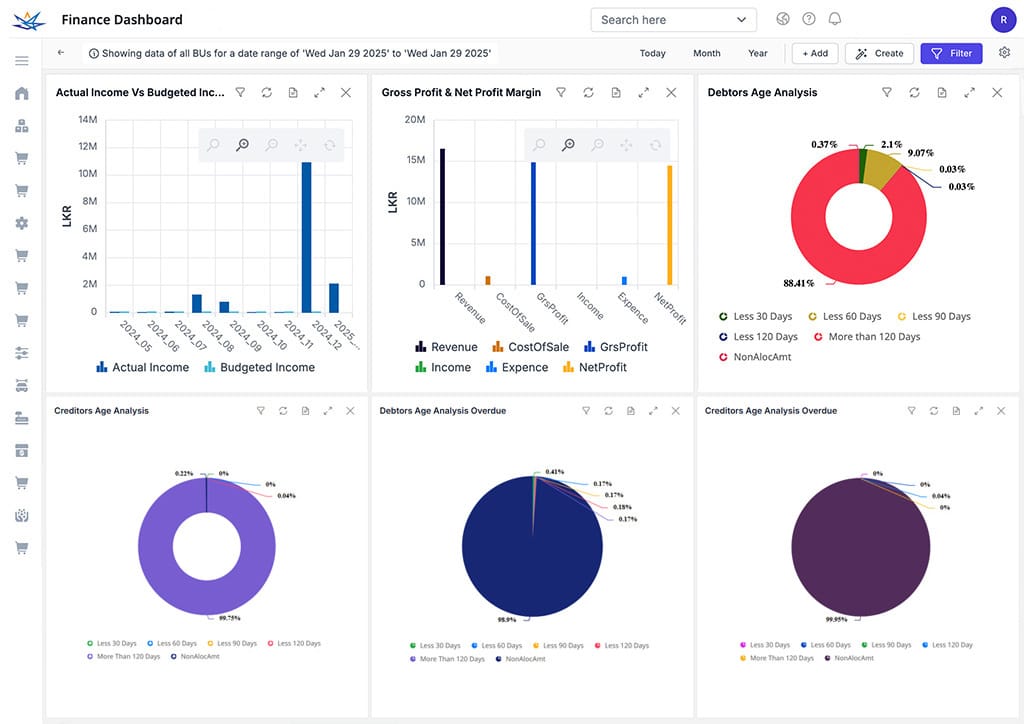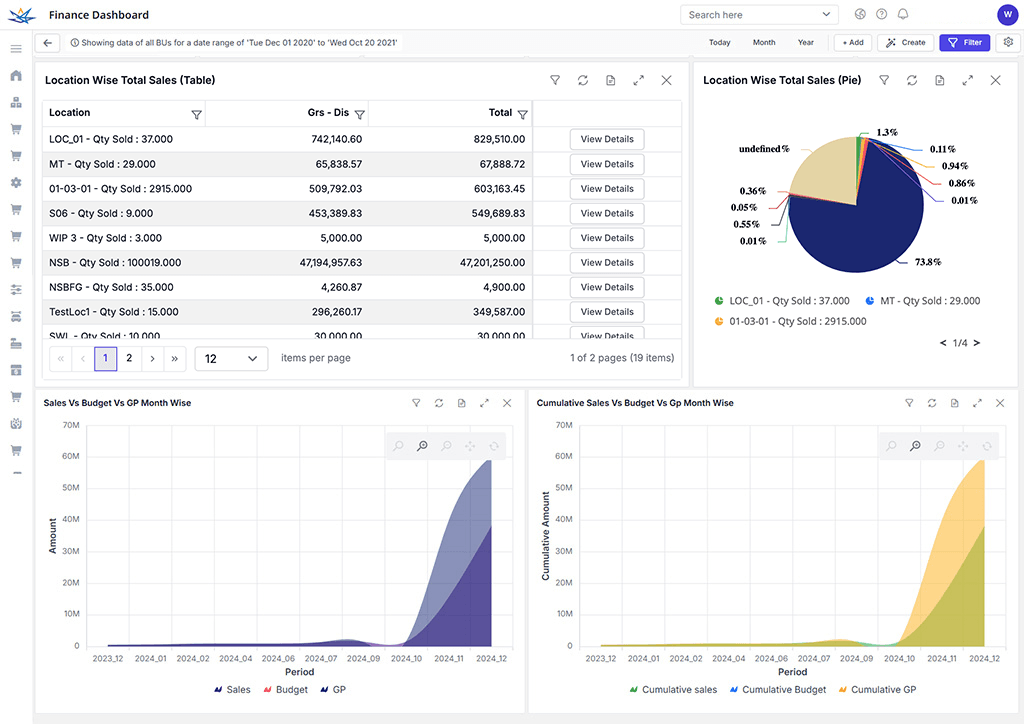Blue Lotus 360 has transformed our small business operations. The Express Version is simple, efficient, and packed with essential features that help us manage everything from inventory to finance with ease. It’s been a game-changer in streamlining our processes, boosting productivity, and driving growth. Perfect for small businesses like ours!
David James
Founder of Sunrise HoldingsBlue lotus 360 Team understands what the customers wants, and its technology and customer service satisfy them better than competitors do.
Mr. Sanjeewa Wije Goonewardene
Managing Director - Tisara Engineering


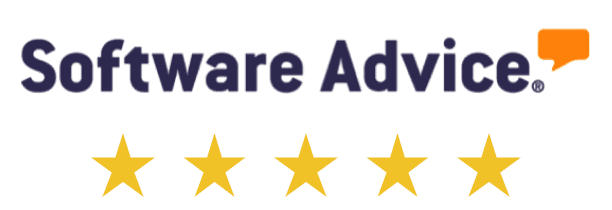
Streamlined ERP for Small Businesses in Sri Lanka
Blue Lotus 360 ERP – Express Version is a tailored solution for small to medium-sized enterprises (SMEs) in Sri Lanka. With essential modules and user-friendly features, it helps businesses manage operations efficiently without the complexity of full-scale ERP systems.
Designed for simplicity and scalability, this version offers an intuitive interface and quick implementation. It integrates key functions like finance, inventory, and customer relationship management, ensuring seamless workflows, data-driven decisions, and improved productivity. Empower your business to focus on growth, enhance performance, and stay competitive in Sri Lanka’s fast-paced market.
Eliminate manual tasks
Streamline operations by automating tasks, reducing errors, empowering teams, and focusing on goals for impactful outcomes.
Instant access to critical data
Transform workflows into digital ecosystems that enhance collaboration, provide insights, boost responsiveness, and enable smarter decisions.
Enhance workflow efficiency
Simplify operations with automation and insights, enabling smoother workflows, reducing redundancies, and driving organizational productivity improvements.
Identify inefficiencies
Identify inefficiencies, eliminate redundancies, streamline processes, and optimize workflows to reduce costs and enhance efficiency.
Track financial leaks
Detect discrepancies early, resolve swiftly, and implement actions to protect profits and ensure financial stability.
Boost profitability
Eliminate inefficiencies, implement cost-saving measures, and optimize processes to boost profitability and improve financial performance.
Real-time insights
Gain comprehensive visibility into operations, empowering accurate decisions that drive timely, effective, and impactful business outcomes.
Proactive management
Proactively manage stock levels to prevent shortages, ensure timely replenishment, and maintain smooth operations seamlessly
Operational continuity
Identify and resolve challenges early to ensure smooth, consistent processes, maintaining efficiency and minimizing disruptions.
Key Modules
Essential Modules Designed to Streamline and Simplify Small Business Operations.
General Ledger
Accounts Payable
Accounts Receivable
Global Account Consolidation
Basic Inventory
Multi-Currency
Bank Feeds
Tax
Receipts
Reporting
Tailored for Small Businesses Across Key Industries in Sri Lanka
Manufacturing
Manage basic inventory, streamline accounts, and track production costs efficiently for small-scale operations.
Constructions
Keep project finances on track with general ledger, accounts payable, and receivable tools tailored to small construction firms.
Engineering
Simplify financial tracking and basic inventory management to support small engineering teams in delivering quality projects.
Service
Optimize financial oversight with streamlined invoicing, accounts management, and basic inventory tools for service-oriented businesses.
Agriculture
Manage accounts and basic inventory seamlessly, helping small farms and agribusinesses track costs and revenues effectively.
Trading & Distribution
Handle inventory control and financial processes with ease, enabling small-scale distributors to focus on growth.
Public Sector & NGO
Maintain accurate financial records and streamline basic operational needs for impactful small-scale initiatives.
Why Choose
Blue Lotus 360
ERP for Small Business – Express Version?
Experience a flexible, scalable, and innovative ERP solution, customized to fit your business needs in Sri Lanka, with easy implementation and dedicated local support.
Simplicity and Efficiency
Streamline your core business operations with essential modules designed for simplicity and precision. Blue Lotus 360 ERP - Express Version eliminates unnecessary complexity, ensuring your team can focus on what truly matters—enhancing productivity, improving efficiency, and driving growth in a fast-paced business environment.
Cost-Effective
Enjoy affordability and flexibility with our OPEX pricing model, tailored for SMEs. Blue Lotus 360 ERP - Express Version delivers top-tier enterprise functionality at a fraction of the cost, helping small businesses achieve big goals without financial strain or unnecessary capital expenditure.
Scalability
Scale effortlessly as your business grows and evolves. Blue Lotus 360 ERP - Express Version offers seamless upgrades to advanced features and modules, ensuring your ERP system adapts to your changing needs without disruption, keeping you prepared for future challenges and opportunities.
User-Friendly
Reduce the learning curve with an intuitive and easy-to-use interface built for SMEs. Blue Lotus 360 ERP - Express Version prioritizes user experience, enabling quick adoption, minimizing training time, and empowering your team to maximize productivity from day one.
Contact Us
Have questions about Blue Lotus 360 ERP for Small Business? Our team is here to assist you. Fill out the form, and we’ll respond promptly. Let’s explore how we can help drive your business forward in Sri Lanka!

Frequently Asked Questions
Get Answers to Common Questions
1. What is Blue Lotus 360 ERP Express Version?
The Blue Lotus 360 ERP Express Version is a cloud-based enterprise resource planning solution designed specifically for small to medium-sized businesses. It offers essential modules like General Ledger, Accounts Payable, Accounts Receivable, Global Account Consolidation, and Basic Inventory to streamline operations and improve efficiency without the complexity of full-scale ERP systems.
2. Can ERP Be Used for Small Business?
Yes, ERP can be used for small businesses. Blue Lotus 360 ERP offers a streamlined solution specifically designed for small and medium-sized enterprises (SMEs) in Sri Lanka. The Express Version includes essential modules like inventory management, finance, and accounts, all tailored to simplify operations, increase productivity, and support growth. It’s user-friendly, scalable, and cost-effective, making it an ideal choice for small businesses looking to improve efficiency without the complexity of a full-scale ERP system.
3. How many users can access the system at once?
The Express Version supports 3-5 users, making it ideal for small teams that need simultaneous access to essential business functions. This user capacity enables efficient collaboration and streamlined workflows for small businesses.
4. What pricing model does Blue Lotus 360 ERP Express follow?
The Blue Lotus 360 ERP Express Version uses an OPEX (Operational Expense) pricing model, which provides flexibility and affordability for small businesses. This subscription-based model allows businesses to scale
5. What are the available modules in the Blue Lotus 360 ERP Express Version?
The Blue Lotus 360 ERP Express Version includes the following key modules:
- General Ledger: Manage and track financial transactions.
- Accounts Payable: Streamline the process of managing your business’s debts and payments.
- Accounts Receivable: Easily manage and track customer payments.
Global Account Consolidation: Consolidate financial data across multiple accounts.
6. How Do I Choose the Best ERP for My Small Business in Sri Lanka?
When choosing the best ERP for your small business in Sri Lanka, consider factors like ease of use, scalability, and how well it fits your unique business needs. Look for an ERP solution that provides essential features such as finance, inventory, and customer management, without unnecessary complexity. Ensure the solution is cost-effective with flexible pricing models, and choose one that can grow as your business expands.
Blue Lotus 360 ERP – Express Version is specifically tailored for small businesses in Sri Lanka, offering simplicity, affordability, and essential tools to streamline operations and support growth.
7. How much does an ERP system cost for a small business?
The cost of an ERP system for a small business varies depending on the features, scalability, and deployment model. With Blue Lotus 360 ERP – Express Version, the pricing follows an OPEX (Operational Expenditure) model, making it affordable and flexible. You pay a subscription fee, allowing you to scale your ERP solution as your business grows, without the high upfront costs of traditional systems. This makes it a cost-effective solution for small businesses looking to streamline operations while maintaining budget control.
8. Can you use ERP as a first-time business owner?
Yes, you can use an ERP system as a first-time business owner. Blue Lotus 360 ERP is designed to be user-friendly, with intuitive interfaces and simple implementation. Even if you’re new to running a business, the system’s essential modules and easy setup make it an ideal tool for managing finances, inventory, and other core operations. With training and dedicated support, you’ll be equipped to streamline your processes and make data-driven decisions, ensuring smooth growth and operations from the start.



